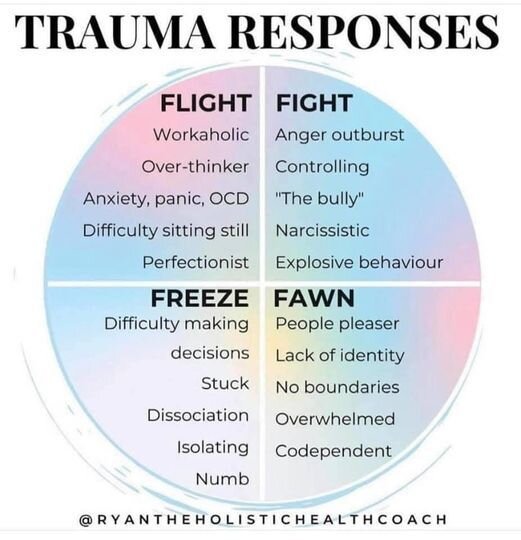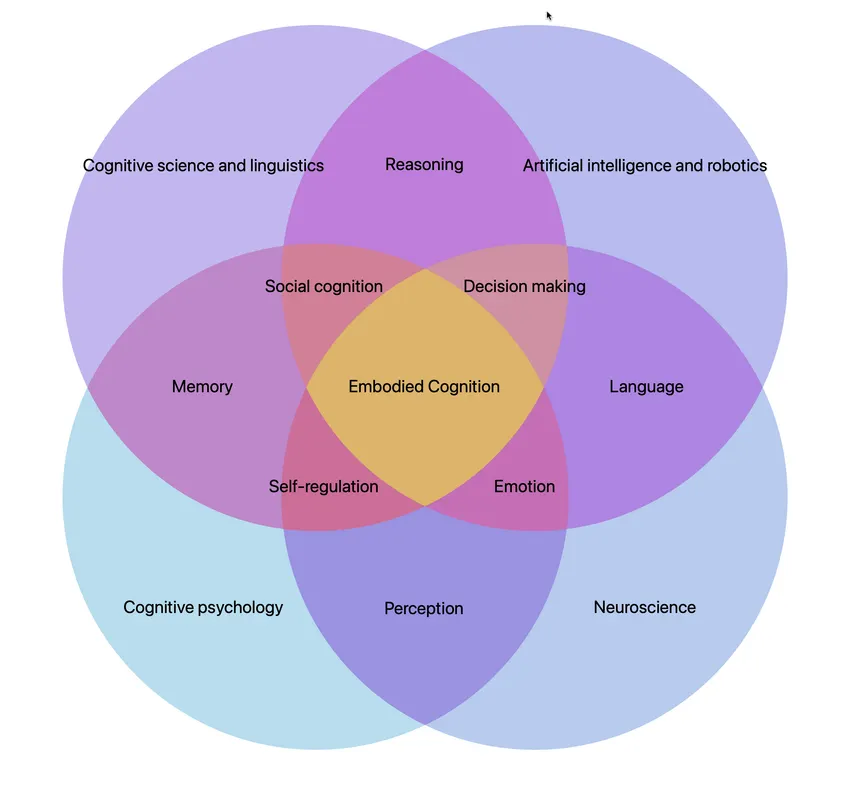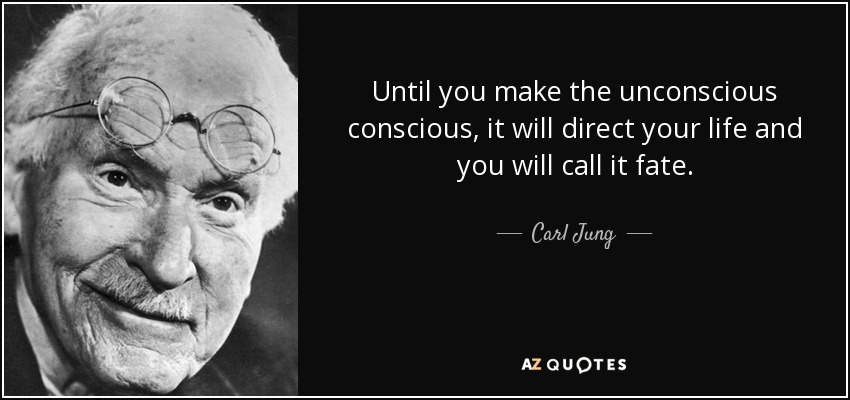You’re not indecisive. You’re not “too nice.”
You’re stuck in a trauma loop of people-pleasing and overthinking.
It’s not your personality.
It’s your nervous system replaying old survival scripts.
Here’s the truth—(most therapists won't tell you) 🧵
You’re stuck in a trauma loop of people-pleasing and overthinking.
It’s not your personality.
It’s your nervous system replaying old survival scripts.
Here’s the truth—(most therapists won't tell you) 🧵

Overthinking is thought to be a bad habit.
It’s not.
It’s a survival mechanism.
Same with people-pleasing.
People-pleasing isn't a kind of gracious personality trait.
It's a way you micro-manage your body's reaction to perceived threats.
Both overthinking and people-pleasing are reactions to perceived trauma.
It’s not.
It’s a survival mechanism.
Same with people-pleasing.
People-pleasing isn't a kind of gracious personality trait.
It's a way you micro-manage your body's reaction to perceived threats.
Both overthinking and people-pleasing are reactions to perceived trauma.
These micro-threats are continuous and come from childhood.
They keep you stuck in survival mode.
They keep you stuck in survival mode.
You don’t just “worry too much.”
1. You scan the room for threats.
2. You replay every conversation.
3. You think about what others might be feeling.
That’s not being thorough, that’s hypervigilance.
A nervous system stuck in trauma responses, such as fight/flight or freeze/fawn--is a nervous system on high alert.
1. You scan the room for threats.
2. You replay every conversation.
3. You think about what others might be feeling.
That’s not being thorough, that’s hypervigilance.
A nervous system stuck in trauma responses, such as fight/flight or freeze/fawn--is a nervous system on high alert.

Here’s the real invisible thought loop that's happening:
You overthink → suppress your needs → over-please to avoid guilt → feel resentful → judge yourself → overthink again.
This is a trauma-fueled treadmill.
It keeps you anxious and externally focused.
Living like this is a constant stress.
You overthink → suppress your needs → over-please to avoid guilt → feel resentful → judge yourself → overthink again.
This is a trauma-fueled treadmill.
It keeps you anxious and externally focused.
Living like this is a constant stress.
New research from Columbia University shows that emotional suppression activates maladaptive defense circuits in the brain.
People-pleasing and overthinking are both maladaptive defense mechanisms.
They block your core emotions.
They keep you from experiencing your genuine feelings.
People-pleasing and overthinking are both maladaptive defense mechanisms.
They block your core emotions.
They keep you from experiencing your genuine feelings.
Dr. Hilary Jacobs Hendel suggests that emotional healing involves moving from defenses, through inhibitory emotions, to core emotions, and ultimately to your authentic self.
By recognizing where you are on the change triangle, you can work toward processing emotions in a healthier way.
By recognizing where you are on the change triangle, you can work toward processing emotions in a healthier way.
Why does this matter?
Because our emotions are meant to move through our body not get STUCK.
When we suppress them and keep them in our heads, our nervous systems never get to reset.
Our bodies stay stuck in low-level SURVIVAL mode, without any actual threat happening.
Because our emotions are meant to move through our body not get STUCK.
When we suppress them and keep them in our heads, our nervous systems never get to reset.
Our bodies stay stuck in low-level SURVIVAL mode, without any actual threat happening.
Eckhart Tolle says:
"You are not your thoughts. You are the awareness behind them."
But for people-pleasers, thoughts feel MUCH safer than feelings.
So they overthink to avoid the discomfort of feeling their genuine emotions.
"You are not your thoughts. You are the awareness behind them."
But for people-pleasers, thoughts feel MUCH safer than feelings.
So they overthink to avoid the discomfort of feeling their genuine emotions.
Overthinkers tend to be high achievers.
But beneath the perfectionism is a fear:
1. Fear of disappointing others.
2. Fear of rejection from others.
3. Fear of disapproval and rejection.
4. Fear of getting something wrong.
By overthinking, you prevent your true feelings from surfacing.
But beneath the perfectionism is a fear:
1. Fear of disappointing others.
2. Fear of rejection from others.
3. Fear of disapproval and rejection.
4. Fear of getting something wrong.
By overthinking, you prevent your true feelings from surfacing.
When we ruminate and over-analyze:
1. We delay decision-making.
2. Our self-trust diminishes.
3. Our anxiety spikes.
4. We block intuitive thinking.
Neuroscience confirms this.
Chronic overthinking shrinks the hippocampus, reducing clarity and memory recall.
1. We delay decision-making.
2. Our self-trust diminishes.
3. Our anxiety spikes.
4. We block intuitive thinking.
Neuroscience confirms this.
Chronic overthinking shrinks the hippocampus, reducing clarity and memory recall.

People-pleasing does the same thing.
It wires your brain to prioritize safety over authenticity.
You stop asking: “What do I want?”
Instead, ask: “What will keep the peace?”
Your true identity diminishes over time until you lose all touch with who you really are.
It wires your brain to prioritize safety over authenticity.
You stop asking: “What do I want?”
Instead, ask: “What will keep the peace?”
Your true identity diminishes over time until you lose all touch with who you really are.
Here’s how Tolle’s insights and current brain research come together to break this loop:
Step 1: Name the pattern.
“I’m having a people-pleasing thought.”
Labeling creates distance.
It activates the prefrontal cortex, creates a moment of clarity, and turns down your body's stress response.
Step 1: Name the pattern.
“I’m having a people-pleasing thought.”
Labeling creates distance.
It activates the prefrontal cortex, creates a moment of clarity, and turns down your body's stress response.
Step 2: Feel your body.
Don’t try to stop the thought.
Shift attention to your hands.
Notice tingling, weight, and pressure.
This interrupts the brain’s default mode network—the part responsible for internal chatter--and brings you into the present moment.
Don’t try to stop the thought.
Shift attention to your hands.
Notice tingling, weight, and pressure.
This interrupts the brain’s default mode network—the part responsible for internal chatter--and brings you into the present moment.
Step 3: The 90-Second Rule.
When shame or fear hits, wait 90 seconds.
According to Dr. Jill Bolte Taylor, that’s how long emotions chemically last in the body.
Unless you feed them with more thought, the energy will flush out of your brain and body.
Pause. Breathe. Choose.
And let the trauma response pass.
When shame or fear hits, wait 90 seconds.
According to Dr. Jill Bolte Taylor, that’s how long emotions chemically last in the body.
Unless you feed them with more thought, the energy will flush out of your brain and body.
Pause. Breathe. Choose.
And let the trauma response pass.
Step 4: Ask better questions.
Instead of “What will they think?”
Try these questions:
“What do I feel?”
“What do I need right now?”
“What’s true for me even if it’s not approved?”
This builds authenticity and real-self experiences.
Instead of “What will they think?”
Try these questions:
“What do I feel?”
“What do I need right now?”
“What’s true for me even if it’s not approved?”
This builds authenticity and real-self experiences.

Step 5: Take small, authentic actions.
1. Say "no" to one thing.
2. Tell the truth even if your voice shakes.
3. Resist over-explaining.
Each act tells your nervous system:
"It’s safe to stop performing."
1. Say "no" to one thing.
2. Tell the truth even if your voice shakes.
3. Resist over-explaining.
Each act tells your nervous system:
"It’s safe to stop performing."
The paradox is this:
People-pleasers are often the most intuitive, creative, and emotionally intelligent people on the planet.
But they’ve been stuck playing a role they never chose.
People-pleasers are often the most intuitive, creative, and emotionally intelligent people on the planet.
But they’ve been stuck playing a role they never chose.
Under every people-pleaser is a quiet rebel.
A truth-teller.
An artist.
A boundary-setter.
But these parts of yourself were suppressed because you thought they were unsafe to reveal.
They are still inside you, waiting for permission to return.
A truth-teller.
An artist.
A boundary-setter.
But these parts of yourself were suppressed because you thought they were unsafe to reveal.
They are still inside you, waiting for permission to return.
When you stop covering up your true feelings, three things happen:
1. Your thoughts quieten down.
2. You make clear, unregrettable decisions.
3. Your nervous system stabilizes.
You become less afraid, and you 10X your productivity.
1. Your thoughts quieten down.
2. You make clear, unregrettable decisions.
3. Your nervous system stabilizes.
You become less afraid, and you 10X your productivity.
Overthinking and people-pleasing are not personality flaws.
They’re adaptations to emotional unpredictability.
They were smart choices when you made them.
They were protective.
But now, they keep you small.
They’re adaptations to emotional unpredictability.
They were smart choices when you made them.
They were protective.
But now, they keep you small.
You don’t need more discipline. You don't need meditation 2X per day.
You need permission to:
1. Feel your emotions.
2. Make space for your needs.
3. Stop living your life through others’ eyes.
That’s healing.
You need permission to:
1. Feel your emotions.
2. Make space for your needs.
3. Stop living your life through others’ eyes.
That’s healing.
If you’ve spent years stuck in overthinking/people-pleasing loops, you’re not broken.
It's a way to stay invisible.
Now you have the chance to heal and show the world who you really are.
I run a private community for high performers. They learn to break free from this exact pattern.
It's a way to stay invisible.
Now you have the chance to heal and show the world who you really are.
I run a private community for high performers. They learn to break free from this exact pattern.
I'm Lorwen, a PhD clinical psychologist from @UTAustin, who has worked with the Dalai Lama and Post-doc CBT-trained @Harvard University.
.
I help people heal from trauma and psychological issues. If you're ready to break free from painful patterns, book a call with me to map your path to mental freedom:
calendly.com/lorwen_consult…
Maybe it's time to feel whole again.
.
I help people heal from trauma and psychological issues. If you're ready to break free from painful patterns, book a call with me to map your path to mental freedom:
calendly.com/lorwen_consult…
Maybe it's time to feel whole again.
• • •
Missing some Tweet in this thread? You can try to
force a refresh





















